4 Reasons Why Homegrown Vegetables Taste Better
If you grow a garden, you know that homegrown vegetables taste better than anything you can purchase in the produce department of your grocery store.
But why do homegrown vegetables and fruit taste better? Is it purely a mental thing — where we naturally enjoy most what we put our hard work into growing? Or are there also scientific reasons why store-bought tomatoes don’t compare to homegrown?
In today’s episode of the Beginner’s Garden Podcast and post below, I share with you 4 reasons why the fruits and vegetables you grow yourself taste better. Click below to listen or continue reading.
Store-Bought Fruits and Vegetables Favor Long Shelf-Life Over Flavor
Hybrid fruits and vegetables take on characteristics of two different plants of the same family. They can and do occur in nature when bees, wind, and other pollinators transfer pollen from one plant to another.
With controlled hybrids, plant breeders combine the favorable characteristics of one plant with the favorable characteristics of another. This controlled hybridization gives us many good cultivars, such as those bred for disease resistance. But, hybridization can also compromise flavor.
The fruits and vegetables that line our grocery store shelves require a long shelf-life. Hybrid varieties offer favorable characteristics such as that long shelf-life and the uniform fruits and vegetables consumers expect.

However, those characteristics often come at the cost of flavor. When fruits and vegetables are bred to withstand transportation and a long time on the shelf, you’ll find that flavor sacrificed.
Sugars Turn to Starch Immediately Upon Harvest
There is nothing sweeter than eating a blueberry or a strawberry right after picking it! Why? As soon as the produce is harvested, the sugars start turning to starch.
According to a study on sweet corn from Purdue University, standard sweet corn loses 50% of its sugar content in the first 12 hours after harvest.
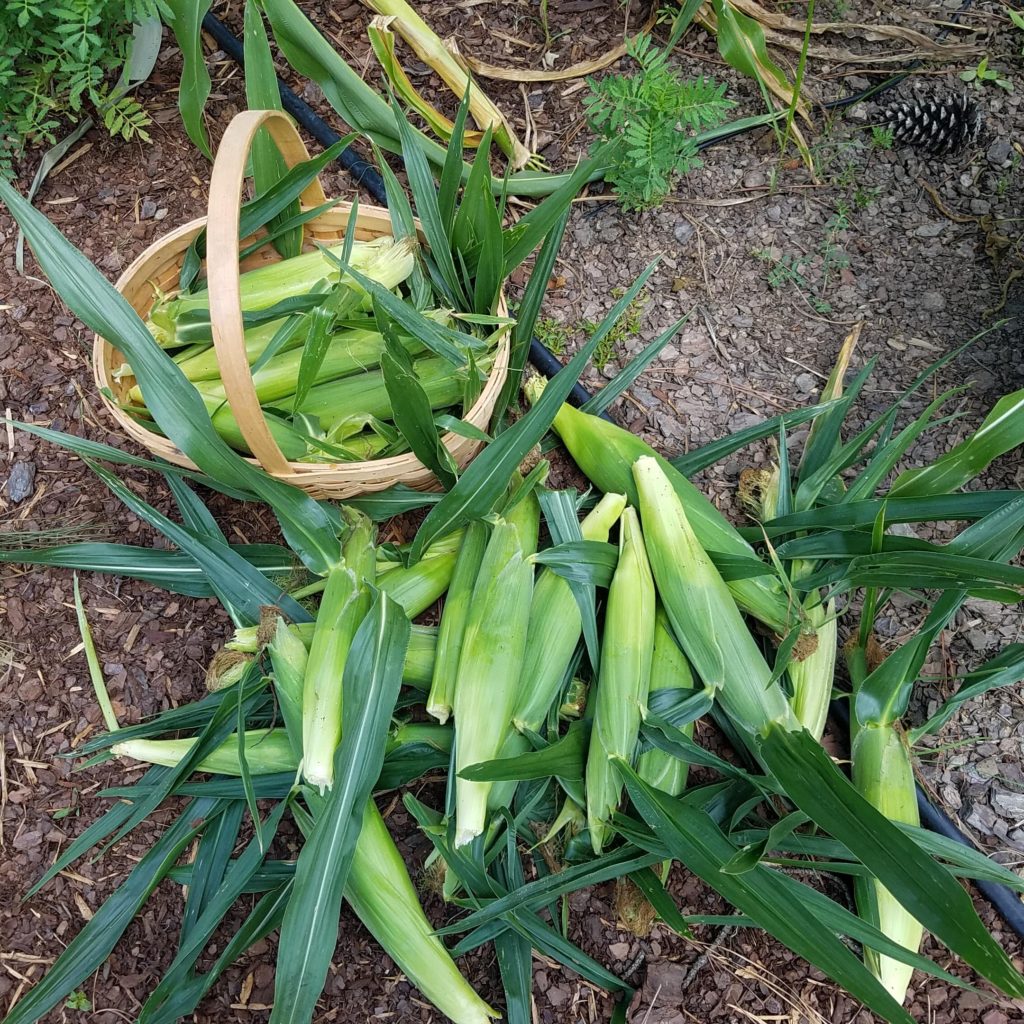
When you buy from the grocery store, there’s no way to know how long the fruit or vegetable has been off the vine or plant. The more time that elapses between harvest and when you eat, the more of the plant’s natural sugars have turned to starch.
But when you pick your own, you control how quickly you consume a fruit or vegetable at its peak ripeness. And as the saying goes, before harvesting corn, make sure the pot is boiling before heading out to pick.
Store-Bought Produce are Harvested Before Peak Ripeness (and sometimes ripened artificially)
Since most produce to be sold in grocery stores travels a significant distance, many fruits and vegetables are harvested before peak ripeness. Some will then be ripened artificially during transport. For example, tomatoes are harvested when they are bright green. Then, ethylene gas is applied to the tomatoes during transport to artificially ripen them to red.
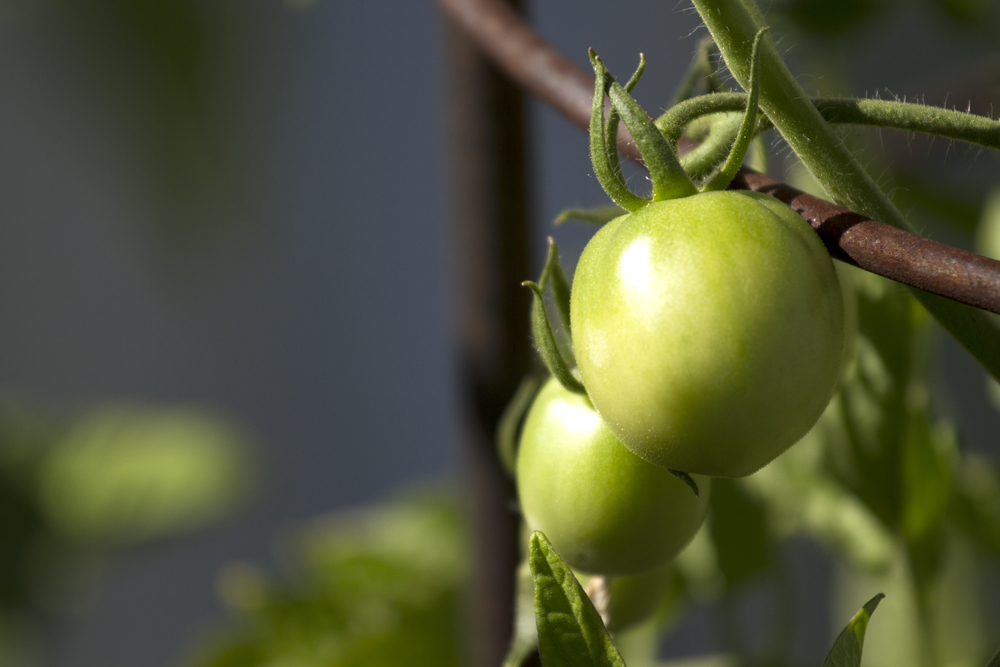
These fruit and vegetables did not naturally begin to ripen on the vine. This contributes to a significant flavor difference.
Back to the tomato example. When left on the plant and not picked until the tomato reaches the breaker stage, the flavor profile of the tomato soars. Read more about picking tomatoes just after the breaker stage in this post: troubleshooting common tomato problems.

Lack of Soil Nutrients = Lack of Vegetable Nutrients = Lack of Flavor
As a gardening advocate, I recommend using organic practices including using compost and organic materials from natural sources to enrich your soil. This enriched soil feeds your plants.

In modern agriculture, the soil has been stripped of natural nutrients. To make up for this lack of nutrients, growers apply synthetic fertilizers. These chemical fertilizers provide the main nutrients plants need to grow. But, they do not contribute micronutrients or the soil microbiome plants need for a complete nutritional profile.
Another factor worth mentioning is that when chemical fertilizers are applied, crop yields increase. While this seems like a good thing, the “dilution effect” causes the fruits and vegetables to decrease in nutritional density.
This meta-analysis from the American Society of Horticultural Science confirms through several scientific studies that the nutritional content of our fruits and vegetables has declined over the years.
But how does this impact the taste of our food?
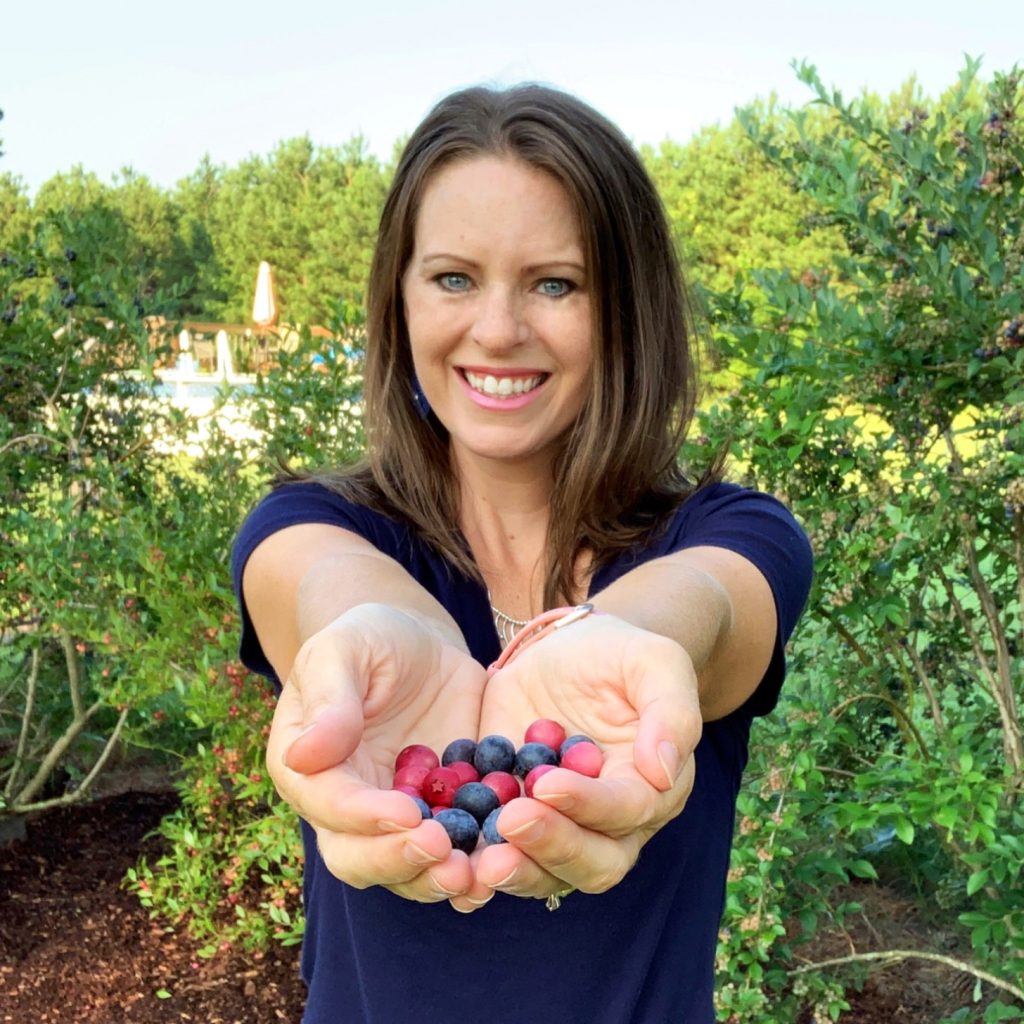
The diversity of nutrients in the soil not only provide nutrients to your crops but they also yield more nutrient-dense and thus better tasting fruits and vegetables. As home gardeners, we can exercise more control over the quality of our soil and the health of our plants.
As we add organic material and refrain from the use of chemical fertilizers, we work to feed the soil. In turn, the soil feeds the plants, which increases the nutrient density. More nutrients equals more flavorful food.
Homegrown Vegetables Taste Better
For these reasons and likely more that we haven’t discussed, homegrown vegetables and fruit do taste better. Of course, home gardeners already know this, but now we can understand some of the reasons why.
Do you get overwhelmed with garden planning?

Subscribe here for my best tips to plan your garden in just 7 days -- all for FREE.
Plus, I'll send you my "In the Garden E-mail" on Fridays, periodic updates on garden resources relevant to you, and you'll receive access to my entire bank of free garden downloads!
You are also agreeing to our privacy policy.

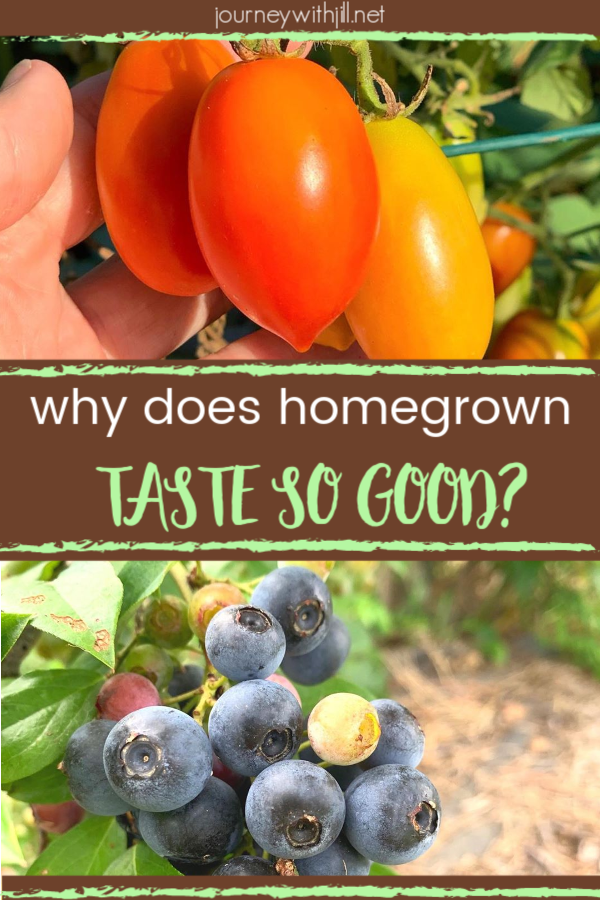
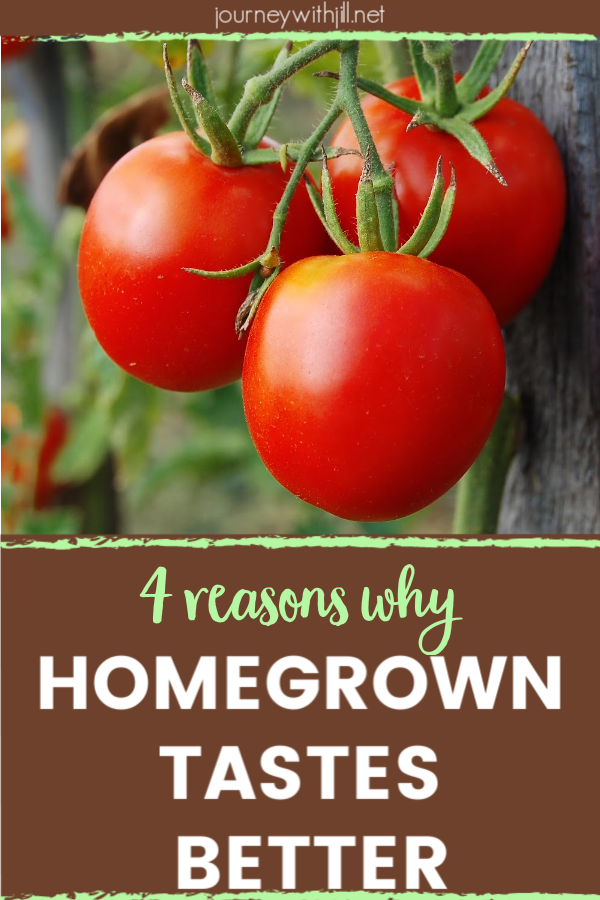
An excellent book covering this topic is Tomatoland by Barry Estabrook. I will never buy another store bought tomato after reading it.
Yes, that book was very eye-opening to me. Have you heard of the changes that have been made in the industry since he first wrote it? You might be interested in learning more through his interview last year with Joe Lamp’l: https://joegardener.com/podcast/tomatoland/
Great post.
I grew potatoes and onions in containers this year. I used Happy Frog soil and amended with Happy Frog general purpose fertilizer. The harvest was petty good. I have started using the onions and potatoes and find the flesh to be extremely firm, more so than in the past. Most be because they went from the ground to the cooking pot.
i was just browsing along and came upon your blog. just wanted to say good blog and this article really helped me.